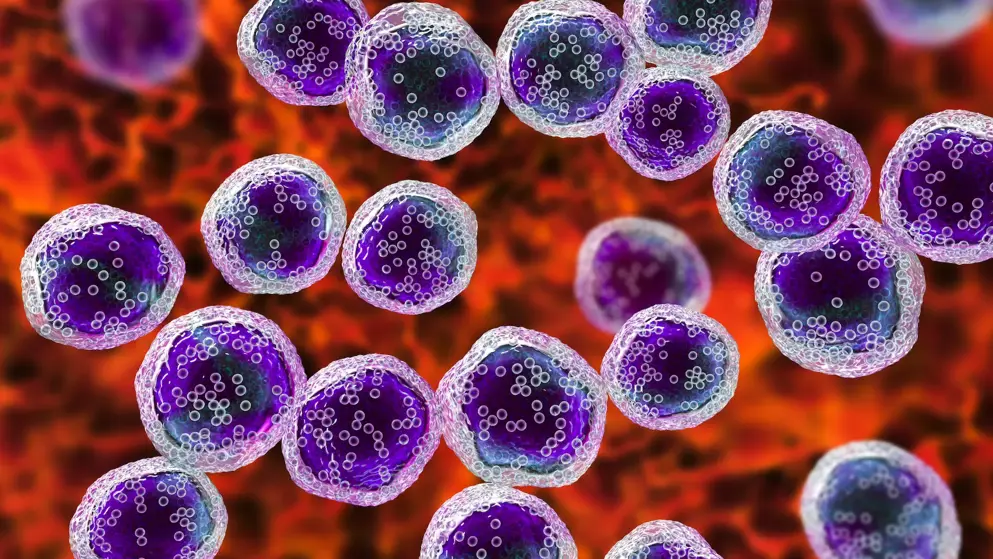
New pivotal data demonstrate clinical benefit of glofitamab, a potential first-in-class bispecific antibody for people with aggressive lymphoma.
Roche has announced that new pivotal data on its investigational CD20xCD3 T-cell engaging bispecific antibody, glofitamab, will be presented for the first time at the 2022 American Society of Clinical Oncology (ASCO) Annual Meeting from 3-7 June and the European Hematology Association (EHA) 2022 Congress from 9-12 June.
Data from the phase II NP30179 expansion study demonstrated that, after a median follow-up of more than 12 months, fixed-duration glofitamab (given for a fixed amount of time, and not taken until disease progression) induces durable complete responses (CRs) in patients with relapsed or refractory (R/R) diffuse large B-cell lymphoma (DLBCL) who had received a median of three prior therapies.
The pivotal phase II NP30179 expansion study included patients with heavily pre-treated and highly refractory DLBCL, with 58.3% of patients refractory to their initial therapy and about one-third (33.1%) having received prior CAR T-cell therapy. After a median follow-up of 12.6 months, 39.4% of patients (n=61/155) achieved a CR (primary efficacy endpoint) and half of them (51.6%; n=80/155) achieved an overall response (the percentage of patients with a partial or complete response; secondary efficacy endpoint), as assessed by an independent review committee. The majority (77.6%) of complete responses were durable and ongoing at 12 months and the median duration of complete response had not yet been reached (not evaluable [16.8 months, not evaluable]).
Cytokine release syndrome (CRS) was the most common adverse event occurring in 63.0% of patients. CRS events were predictable, generally low grade (mainly Grade 1 [47.4%] or 2 [11.7%]), occurred at initial doses, and only one patient discontinued glofitamab due to CRS. Incidence of Grade 3+ CRS was low (3.9%), with no Grade 5 events.
Data from the NP30179 study have been submitted for approval to the European Medicines Agency (EMA), and submissions to additional health authorities worldwide, including to the FDA, are planned this year. Glofitamab is being inves.
tigated in several clinical trials and explored in earlier lines of lymphoma treatment.
Roche is investigating its CD20xCD3 T-cell engaging bispecific antibodies glofitamab and mosunetuzumab further as subcutaneous formulations and in additional phase III studies that will expand the understanding of their impact in earlier lines of treatment, with the aim of providing people with different types of lymphomas with robust and durable treatment outcomes.

